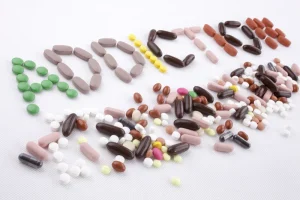
Alcohol consumption spans a spectrum ranging from low risk to severe alcohol use disorder (AUD). Alcohol withdrawal (alcohol withdrawal syndrome) is a range of symptoms that can happen if you stop or significantly reduce alcohol intake after long-term use. Before starting your detox from alcohol, a healthcare provider will assess your medical history, the severity of your alcohol dependence, and any coexisting health conditions.
Here’s What Alcohol Withdrawal Symptoms Actually Feel Like

Our writers include physicians, pharmacists, and registered nurses with firsthand clinical experience. All condition, treatment and wellness content is medically reviewed by at least one medical professional ensuring the most accurate https://ecosoberhouse.com/ information possible. It is important to contact a doctor if you have concerns about alcohol dependence or alcohol use disorder.
- Furthermore, only 1% of participants in the alcohol-related tremor group had a family history of tremors, in contrast to 46% of individuals with essential tremor.
- The cerebellum (responsible for movement), amygdala (controls emotion regulation), and prefrontal cortex (controls decision-making), are the main areas where alcohol causes hindrances.
- The most effective way to prevent alcohol withdrawal syndrome is to avoid drinking or drinking only in moderation.
- A hangover occurs when a person drinks too much alcohol at one time.
- Addiction Resource is not a healthcare provider, nor does it claim to offer sound medical advice to anyone.
How to Manage PAWS Symptoms

Symptoms are often at their worst around 24 to 72 hours after you stop drinking. Mild withdrawal symptoms often begin within 6 to 12 hours after your last drink. When a person drinks heavily, frequently, or for prolonged periods of time, their brain compensates for alcohol’s depressant effects by releasing more stimulating chemicals (compared to when a person does not drink). All withdrawal symptoms – whether the psychological ones like anxiety, or the physical ones like the shakes – are caused by your body going into ‘fight or flight’ mode. Severe symptoms can additionally include hallucinations (seeing, hearing, or feeling things that aren’t real),4 as well as seizures or delirium tremens (‘DTs’). Withdrawal symptoms can be physical and psychological, and range in severity from mild to severe.
Stage 3: Severe Withdrawal
For people who experience hallucinations as part of alcohol withdrawal, these may begin in the 12- to 24-hour time frame. There is no exact timeline for alcohol withdrawal, and individual factors, such as the level of dependence on alcohol, will influence it. You don’t need to be diagnosed with alcohol use disorder in order to quit drinking.
Assessing Severity
Alcohol withdrawal symptoms can develop alcohol withdrawal syndrome symptoms once a person with alcohol use disorder stops drinking alcohol. More mild alcohol withdrawal symptoms include tremors, weakness, sweating, gastrointestinal symptoms, fast heart rate, headache, and elevated blood pressure. According to the National Institute on Alcohol Abuse and Alcoholism (NIAAA), alcohol is the most commonly used substance in the United States, with over 75% of individuals aged 12 and older reporting lifetime consumption. Alcohol consumption spans a spectrum from low-risk to severe alcohol use disorder (AUD).
Supporting Long-Term Abstinence
All calls will be answered by Still Behavioral Health Group, a paid advertiser. Any treatment center receiving calls from the site is a paid advertiser. Calls to numbers on a specific treatment center listing will be routed to that treatment center. Calls to any general helpline will be received by Still Behavioral Health Group, a paid advertiser.

Moderate alcohol withdrawal, which includes psychiatric manifestations such as hallucinations, also begins around six hours post-ingestion and persists for approximately six days. If you or someone you love is what is Oxford House experiencing challenges in recovery, including symptoms of post-acute withdrawal syndrome, know that help is available. At The Ranch, we offer compassionate, individualized care to address every stage of the recovery journey. Whether you’re just beginning treatment or need ongoing support for managing PAWS, our team is here to help. At Healthgrades, our Editorial Team works hard to develop complete, objective and meaningful health information to help people choose the right doctor, right hospital and right care.
